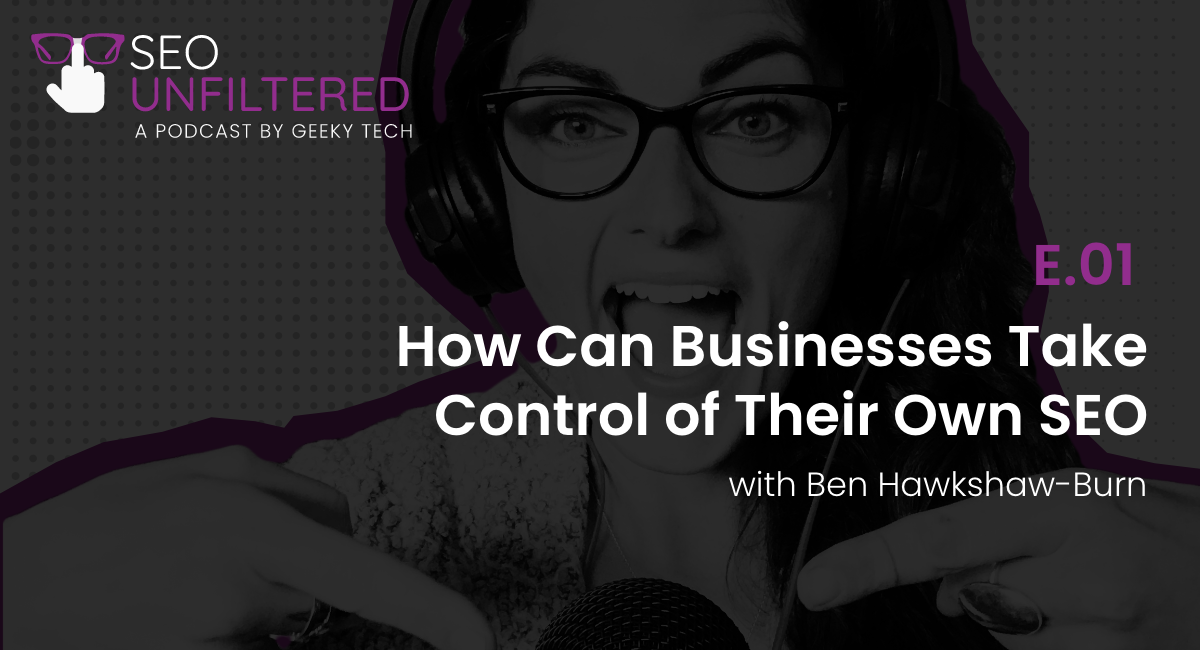You’ve probably heard of SEO by now. Even if you have no idea what it is or why people are talking about it, it’s become a pretty popular talking point in the digital marketing world.
I know first-hand how hard it can be to work out who to listen to and what to do when it comes to search engine optimization. Sadly, so much of the SEO advice you see online is just complete bullsh*t.
If you have a website or online business, it’s definitely time you understand more.
SO, What Is SEO?
SEO stands for search engine optimisation, and it entails any process that strengthens your website’s visibility on search engines. Strictly speaking, SEO encompasses any unpaid, earned, or organic efforts.
Essentially, SEO is anything that Google uses in its algorithm to determine where a website should rank in the organic results.
So, for example, if you have a website that offers coding challenges, your target audience will be searching for phrases such as ‘Python programming challenge’, ‘PHP coding challenges’ or ‘Java coding challenge’.
Of course, you want your website to be showing up in these results, and good SEO can make that happen by ensuring you’re one of the first websites (if not the first) your audience will see.This will mean more leads are making their way to your website.
But Why Google?
Google isn’t the only search engine, is it? What about Bing or DuckDuckGo? What about the old classics like AltaVista or Ask Jeeves?
Google is where most of the people are. In fact, according to Statcounter, Google currently has 92% of the search engine market share. It’s Mr. Monopoly and all the other guys are lucky to get Park Place.
Why Do So Many People Use Google to Search?
At the risk of oversimplifying things, it’s because it works well and it provides much better search results than any of its competitors.
It wasn’t until early 2010 that Bing even became competitive and provided search results of similar quality. But by then, it was too little too late—Google was already an established powerhouse. People associate search with Google—it has even become its own verb, for crying out loud—and Bing still hasn’t managed to gain any significant search share….sorry, Bing.
Google says they answer one billion questions from people around the globe in 181 countries and 146 languages every single day.
What Makes Google’s Results So Good?
Most people think it’s highly complex, top-secret formulas only understood by Google’s geekiest geniuses.
But, it’s actually not as complicated as you might think. To quote Google, ‘You want the answer, not billions of web pages.’
Google’s ranking systems sort through the hundreds of billions of sites in their search index to give you useful and relevant results in a fraction of a second.
These ranking systems are made up of a whole series of algorithms that look at multiple factors including:
- The words of your query
- Relevance and usability of pages
- The expertise of sources
- Your location and settings
So, in order to rank in Google, you need your site to have an impact on those ranking algorithms. In plain terms, you gotta work the system, baby.
Why SEO Is Always Evolving
Google claims it uses over 200 different ranking factors in their algorithm.
Each year, Google changes its search algorithm around 500–600 times. While most of these changes are minor, Google occasionally rolls out a major algorithm update that can have a significant effect on the search results.
How Google Makes Its Money
This can all seem a bit complex and, well, quite overwhelming. Ranking factors aside, let’s try to take a common-sense approach to understanding exactly what Google wants.
Like any business, Google’s main priority is profit. How does it make its money? By placing ads at the top of page one.
But ultimately, it’s the quality of the organic search results that drives the huge volume of people to the site, which is why so many advertisers want to spend money on Google ads in the first place.
The 3 Fundamentals Of SEO
Now that we know how Google operates, let’s get into the meat and potatoes of search engine optimisation. Successful SEO really boils down to three things:
Researching the right keywords for your site is really all about understanding:
- Who your customers are
- The terminology they use to search within Google
- Who your competitors are for those terms
- If your website can compete for those terms
Once you know all that, you then develop a strategy for ranking your website for those terms.
After you work out exactly what you want to rank for in Google, you’ll need to optimise your website for that search term. This includes:
- Keywords
- Variations of that keyword
- LSI Keywords (which is how search engines understand relevancy and context and know the difference between ‘hot dog’ and ‘hot’ and ‘dog’)
- Content and site structure
- Meta titles
- H tags
- Anchor texts
- Image optimisation
- Page structure
- And more
In its most basic form, on-page optimisation is making sure you’ve got the right word on the right part of your site for Google to rank you.
But that’s not all! On-page SEO is where we fix technical bugs and improve your site’s user experience (or UX). For example, in this step, an on-page SEO specialist will make sure you don’t have any broken links and that all your site images have alt attributes…all in the name of higher rankings.
It all gets pretty geeky, and if you want to learn more about how on-page SEO works, check out SEO Fundamentals: Understanding On-Page Optimisation.
Now that you’ve worked out exactly what you want to rank for and you’ve created loads of incredible content that Google will love, off-page SEO makes sure you have enough external signals outside of your own website to justify or validate whatever claim your content is making.
This is often referred to as trust, credibility, or authority.
Your authority is typically going to come from a combination of links (often called backlinks), mentions, and traffic to your website. Your backlinks should ideally come from other high-authority websites because their links hold more value.
What Have We Learned About SEO?
To summarize, search engine optimisation can be broken down into three main objectives:
- Work out what it is your customer is searching for
- Get the right words on the page
- Make sure you have enough authority or external signals in Google’s eyes to rank you for that term
Thanks for reading, everyone. I’m going to follow up with more blogs and videos that take a deeper look at each of the three fundamental areas of SEO, and I want to give you some actionable advice you can use for your site. Stay tuned!














